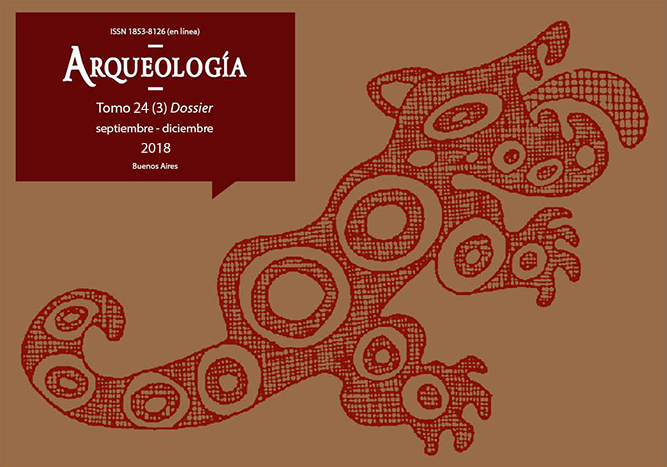Settlement and mobility strategies among hunter-gatherer-fisher communities from the Southern region of the Fuegian Atlantic Coast
Keywords:
Settlement patterns, Occupation intensity, Hunter-gatherer-fishers, Quantitative methods, Spatial statistics, GIS
Abstract
This article focuses on the study of the social space management strategies of hunter-gatherer-fishers within the Fuegian Atlantic coast. This theme has been tackled from three different perspectives: the analysis of the relationship between environmental features and settlement intensity, the proximity of these places to certain necessary resources, and the study of neighbourly relationships between these communities. To study these three aspects, we used analytical tools from the domain of quantitative archaeology, including exploratory and spatial statistical methods. Data-mining, analysis and visualisation were combined within a Geographical Information System from where our results were interpreted. By these means, we addressed several questions, such as which environmental variables and resources affected settlement choices and with which intensity and what was the influence of other non-environmental related factors on habitat patterns.Downloads
How to Cite
Negre, J., Briz i Godino, I., Pal, N., & Álvarez, M. (1). Settlement and mobility strategies among hunter-gatherer-fisher communities from the Southern region of the Fuegian Atlantic Coast. Arqueología, 24(3), 101-122. https://doi.org/10.34096/arqueologia.t24.n3.5383
Section
Articles
Authors who publish in this journal agree to the following conditions:
- Authors retain copyright and yield to the journal right of first publication with the work registered with attribution license Creative Commons, which allows third parties to use the published always mentioning the authorship of the work and first publication in this magazine.
- Authors can make other independent and additional contractual arrangements for the non-exclusive distribution of the version of the article published in this issue (p. Eg., Inclusion in an institutional repository or publish it in a book), provided that clearly indicate that the work was published for the first time in this magazine.
- It allows and encourages the author / s to publish their work online (eg institutional or personal pages) before and during the process of revision and publication, as it can lead to productive exchanges and greater and more rapid dissemination of work published (See The Effect of Open Access).





(1)13.png)






1.jpg)
1.jpg)


13.png)
1.png)


(1)1.png)









